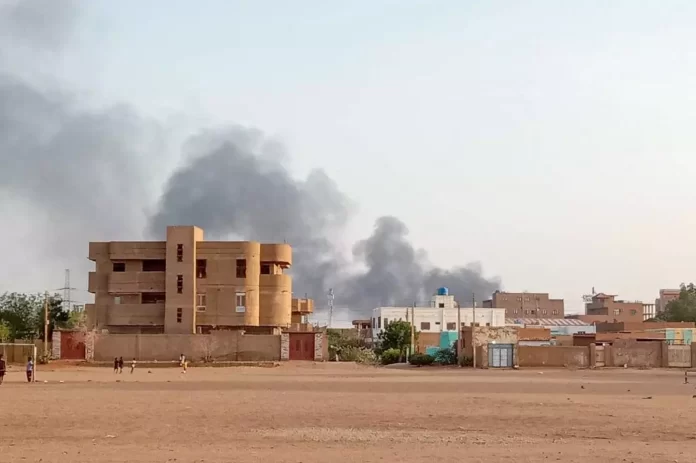At least 40 civilians were killed and dozens injured in an air strike by the army on a market in southern Khartoum, a local volunteer group said in a statement on Sunday, marking the largest single-incident death toll since the war in Sudan began in April, reports Middle East Eye late on September 10.
Air and artillery strikes in residential areas have intensified as the war between the Sudanese army, led by Abdel Fattah al-Burhan and the paramilitary Rapid Support Forces (RSF), led by his former deputy, Mohamed Hamdan Daglo, nears the five-month mark. Neither side has shown any concrete signs of pursuing mediation.
Drones reportedly carried out a series of heavy airstrikes on Sunday morning on southern Khartoum, a large district of the city occupied mainly by the RSF. Residents of the area tend to be day workers who, cut off from jobs, are too poor to afford the cost of escaping from the capital.
Mohamed Abdallah, a spokesman for the Emergency Room, which tries to provide medical and other services, said the injured had to be transported on rickshaws or donkey carts.
Indiscriminate shelling
In a statement, the RSF accused the Sudanese army of carrying out the attack, as well as other strikes. The Sudanese army denied responsibility and blamed the RSF.
“We only aim our attacks at the enemy’s groupings and stations in different areas,” Brigadier General Nabil Abdallah said.
The army has been accused of repeated indiscriminate shelling of the residential areas where the paramilitaries have embedded themselves, including by evicting families and taking over homes.
Over 2.8 million people have fled the Sudanese capital, whose pre-war population was around five million.
While the RSF has fanned out across residential areas throughout the capital Khartoum and neighbouring Bahri and Omdurman, the army has used its advantage of heavy artillery and air strikes to try to push them back, resulting in hundreds of civilian casualties.
Strikes in western Omdurman last week killed at least 51 people across two separate days. With most hospitals closed and no functioning local government, volunteers struggle to document the full extent of deaths.
Medical aid agency MSF, which operates Bashair hospital in southern Khartoum, said on social media network X (formerly known as Twitter) that the crowded Gorro market was hit at 7am, and that at least 60 people were wounded. Doctors had stopped trying to count as they operated on torn body parts.
“Khartoum has been at war for almost six months. But still, the volunteers … are shocked and overwhelmed by the scale of horror that struck the city today,” emergency coordinator Marie Burton said.
On Friday, the Southern Khartoum emergency room said in a statement that the hospital, one of few still operating, was threatened with closure as supplies ran out and staff struggled to reach it.
Alleged war crimes
The army and RSF began fighting on 15 April, after tensions arose over the integration of their troops in a new transition to democracy. Nearly 7,500 people have been killed in the war, according to a conservative estimate from the Armed Conflict Location and Event Data Project. The real death toll is presumed to be much higher, with many of those wounded and killed never reaching hospitals or morgues.
Access to many areas has been cut off completely and the warring sides have not declared their losses.
In addition to the capital, the fighting has been mainly concentrated in the western region of Darfur, where violence linked to the RSF and its allies has prompted the International Criminal Court to open a new investigation into alleged war crimes.
A total of over five million people have been forced to flee their homes, according to the United Nations, one million of them across borders.
In the early months of the war, multiple truces brokered by the United States and Saudi Arabia were systematically violated before the two mediators adjourned talks in June.
Recent moves by Burhan, including trips to Egypt, South Sudan and Qatar, signalled a potential return to diplomacy, though both he and Daglo continue to trade hostile statements.




